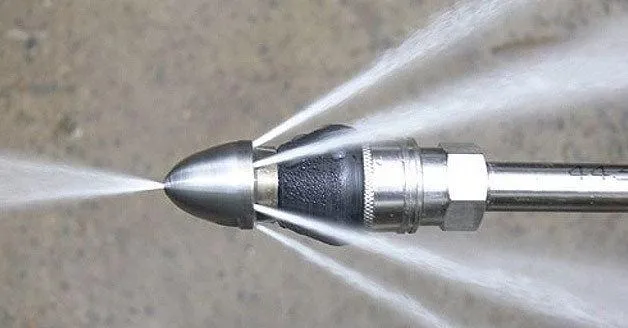
Proudly Serving: Grand Isle, Franklin & Chittenden Counties, VT and Clinton County, NY

The Ultimate Guide to Choosing the Best Pipe Thawing Service Near Chittenden County
Frozen Pipes in Vermont: Why It’s a Homeowner’s Worst Nightmare
It’s the dead of winter in Chittenden County. The temperature has been hovering below zero for days, and just when you think your home is handling it fine, you turn on the faucet—and nothing comes out. Maybe there’s a faint trickle, maybe there’s no water at all. Either way, your stomach drops because you know exactly what’s happened: your pipes are frozen.
If you’ve ever had to deal with frozen pipes, you know the fear that comes with it. The longer they stay frozen, the more pressure builds up inside, increasing the risk of a burst pipe. And a burst pipe isn’t just a minor inconvenience—it can lead to flooding, structural damage, and thousands of dollars in repairs.
So now, you have a choice: Do you attempt to thaw them yourself and risk making things worse, or do you call in the experts who can handle the problem quickly and safely?
At Complete Excavation & Septic, we understand how stressful this can be. You don’t just need a quick fix—you need a trusted professional who can get your pipes flowing again without damaging your plumbing or costing you a fortune.
This guide will walk you through everything you need to know about choosing the best pipe thawing near Chittenden County so you can get your home back to normal fast.
How Do Pipes Freeze? (And How to Tell If Yours Are at Risk)
Pipes freeze when the temperature drops low enough for water inside them to turn into ice. In Vermont, this happens more often than we’d like, especially in unheated crawl spaces, basements, and exterior walls. Common risk factors include:
Poor insulation around pipes
Extended exposure to subfreezing temperatures
Low water flow or stagnant water inside the pipes
Pipes located in unheated areas like garages, attics, or under mobile homes
Warning Signs of Frozen Pipes
Not sure if your pipes are frozen? Look for these red flags:
No water coming from the faucet
Strange gurgling or banging sounds in the plumbing
Frost or condensation on exposed pipes
Unusual odors from drains (caused by trapped gases in frozen pipes)
Water leaks as ice inside expands and cracks the pipe walls
If you notice any of these, it’s time to take action—fast.
DIY Pipe Thawing vs. Hiring a Pro: What Works and What Doesn’t
A quick online search will give you plenty of DIY methods for thawing frozen pipes, but not all of them are safe—or effective. Let’s break down the common methods homeowners try:
What Usually Doesn’t Work (or Is Too Risky)
🚫 Space heaters & hairdryers – Slow and only work if you can access the frozen section.
🚫 Boiling water – Pouring hot water on a frozen pipe may seem logical, but it can cause thermal shock and crack the pipe.
🚫 Propane torches or open flames – This is outright dangerous. It can damage the pipe, melt plastic plumbing, or even start a house fire.
What Works
✅ Professional pipe thawing with hydro jetting or steam machines – Experts use controlled heat and pressurized water to safely thaw pipes without damaging them.
✅ Electrically heated pipe tape – This is a great preventative measure, but not ideal for thawing frozen pipes once they’re blocked.
If you’re dealing with frozen pipes, your best bet is to call in professionals who have the right equipment to do the job safely.
Signs You Need a Professional Pipe Thawing Service (Before It’s Too Late)
If your pipes are frozen and you’re experiencing any of the following, it’s time to call a pro:
You can’t locate the frozen section of the pipe
Multiple pipes seem to be affected
You hear cracking or popping sounds inside the walls
A pipe has already burst
You’ve tried DIY methods and they aren’t working
Waiting too long can turn a simple frozen pipe into an expensive plumbing disaster. Don’t gamble with your home—get an expert on the job quickly.
How Pipe Thawing Services Work: The Methods That Actually Fix the Problem
A professional pipe thawing service will use one (or a combination) of these methods:
Hydro Jetting – Uses high-pressure hot water to break up ice blockages safely.
Steam Thawing – Gentle steam application to gradually melt ice inside pipes.
Electric Pipe Thawing – Uses controlled electrical currents to warm metal pipes.
Infrared Heating – Specialized equipment that applies heat without direct contact.
The right method depends on the severity of the freeze, pipe material, and location.
What to Look for in a Pipe Thawing Near Chittenden County
Choosing the wrong service can lead to damaged plumbing, inflated bills, or a temporary fix that doesn’t last. Here’s what to look for:
✅ Experience & Reputation – Look for a company that knows Vermont winters and has proven expertise in handling frozen pipes.
✅ Emergency Response Time – Frozen pipes don’t wait, and neither should you. Find a service that offers quick, reliable emergency thawing.
✅ Equipment & Techniques – Do they use safe, effective thawing methods or outdated, risky techniques?
✅ Local Knowledge – Chittenden County has unique winter challenges—make sure the company understands the area’s conditions.
How Much Does Pipe Thawing Cost in Vermont? Avoiding Price Gouging
The cost of professional pipe thawing varies, but here’s a rough estimate:
Standard thawing service: $150 - $500
Emergency service (after-hours or holidays): $250 - $800
Burst pipe repairs: Can run into the thousands if left untreated
Avoid companies that offer vague pricing or won’t give an upfront estimate. A good contractor will be transparent about costs.
Preventing Frozen Pipes: The Best Ways to Protect Your Home Before Winter Hits
Once you’ve thawed your pipes, take steps to prevent it from happening again: ✔️ Insulate exposed pipes with foam sleeves ✔️ Let faucets drip on freezing nights to keep water moving ✔️ Keep your home heated, even if you’re away ✔️ Seal leaks around windows and doors to keep warm air in ✔️ Consider installing heat tape on problem pipes
Why Complete Excavation & Septic is the Trusted Choice for Pipe Thawing in Chittenden County
At Complete Excavation & Septic, we’ve helped countless homeowners in Chittenden, Grand Isle, and Franklin Counties deal with frozen pipes quickly and safely. We understand the unique challenges of Vermont winters, and we tailor our approach to your home’s specific needs.
We don’t just thaw pipes—we help you prevent future freezes, protect your plumbing, and avoid costly damage.
Stay Warm, Stay Safe, and Keep Your Pipes Flowing
A frozen pipe doesn’t have to turn into a disaster. By acting fast and choosing the right professionals, you can get your water running again before serious damage happens.
If you’re dealing with frozen pipes near Chittenden County, don’t wait—give us a call today. Let’s get your home back to normal, fast.

Hours:
Mon - Fri 9:00 am - 5:00 pm
Extended hours by appointment only.



All rights reserved | Privacy policy | Client Support Area
Disclaimer: Septic inspection credit is applied to septic installations only and must be redeemed within 7 days after a written quote provided upon state acceptance of design.
Disclaimer: Septic soil test credit is applied to septic installations only and must be redeemed within 7 days after a written quote provided upon state acceptance of design.
